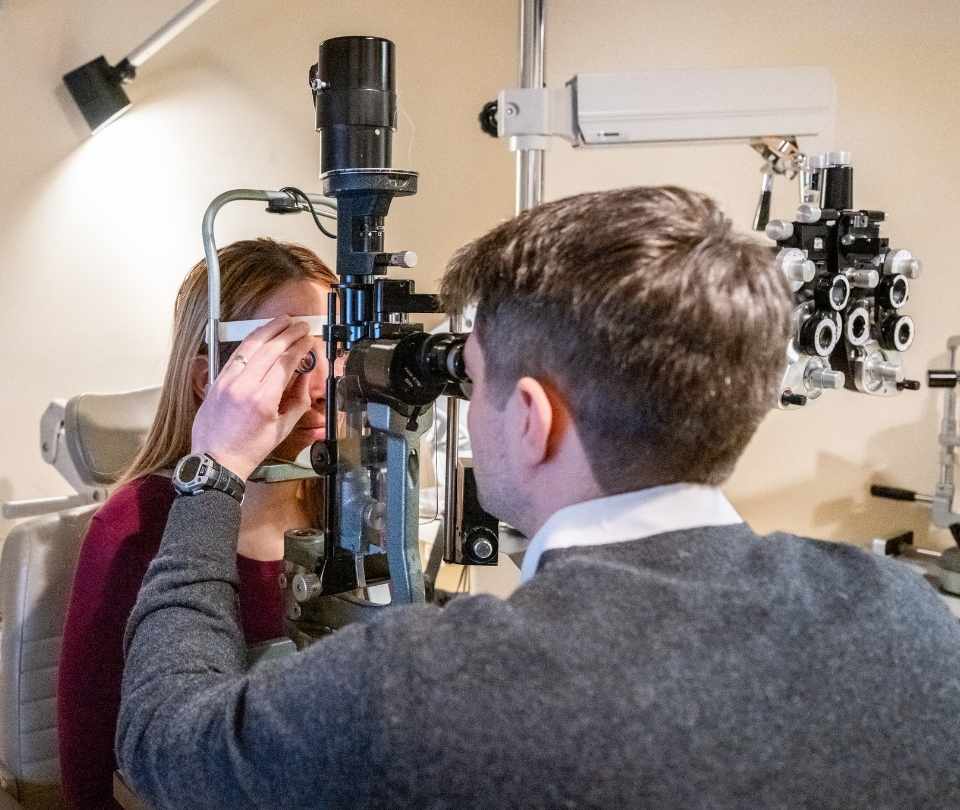A Comprehensive Guide to AMD Eye Vitamins


Age-related macular degeneration (AMD) is a progressive condition that slowly diminishes the sharp, central vision many depend on every day. AMD eye vitamins are specific nutritional supplements designed to support eye health and slow the progression of this condition. With the right balance of vitamins and minerals, many individuals with intermediate AMD may find a way to reduce their risk of further vision loss.
Dr. Bradford Carter Liva is a board-certified ophthalmologist specializing in retinal care, with a focus on injectable treatments for macular degeneration and diabetic retinopathy.
What Is AMD and Why Do Eye Vitamins Matter?
AMD, or age-related macular degeneration, affects the central part of your retina called the macula. This condition, which is most common in people over age 60, gradually causes blurred vision and can eventually lead to irreversible vision impairment. For those who are diagnosed with intermediate AMD, taking specially formulated eye vitamins may help in reducing the risk of advancing towards advanced stages, thereby safeguarding their central vision.




Understanding the AREDS2 Formula
A significant breakthrough in AMD research came about with the Age-Related Eye Disease Study 2 (AREDS2), which tested a specific combination of vitamins and minerals known to really help in slowing the progression of the condition. The AREDS2 formula includes vitamin C, vitamin E, copper, zinc, lutein, and zeaxanthin in the precise amounts that clinical trials found effective. According to recent studies, this combination can lower the progression to advanced AMD by approximately 25 percent in people with intermediate AMD, which makes it a critical area of focus when discussing AMD eye vitamins.
The success of the AREDS2 formula isn’t just in the sheer presence of these nutrients—it is in their exact balance. For example, vitamin C is provided at 500 milligrams while vitamin E is set at 400 international units, ensuring that these antioxidants work synergistically to combat oxidative stress. Similarly, the combination of zinc and copper is carefully balanced; zinc is essential for many retinal processes, but it competes with copper for absorption in the intestines, which is why a dose of 2 milligrams of copper is included. Without this balance, taking a high dose of zinc could lead to copper deficiency and associated complications. This level of detail in formulation makes AREDS2 a trusted blueprint for AMD eye vitamins that really help.
How to Choose the Right AMD Eye Vitamins
Not all eye vitamin supplements are created equal. If you’re considering adding AMD eye vitamins to your routine, it’s critical to ensure that the product adheres to the AREDS2 formula. Look for products that prominently display the USP (United States Pharmacopeia) Label, a mark of quality, purity, and potency. This label guarantees that you receive the correct amounts of vitamin C, vitamin E, copper, zinc, lutein, and zeaxanthin as confirmed by clinical research.




What Recent Studies Suggest About AMD Eye Vitamins
Recent studies continue to reinforce the idea that supplements based on the AREDS2 formula can be instrumental in slowing the progression of AMD. Research indicates that individuals with intermediate AMD who consumed the recommended daily dosages of these vitamins and minerals experienced a statistically significant reduction in the risk of progressing to advanced AMD.
These findings underscore the importance of starting nutritional supplementation early, particularly for those whose eye examinations reveal early signs of macular degeneration. While it’s essential to remember that these supplements are not a cure for AMD, they do offer a means to slow its progression, offering patients more time to maintain their quality of life and independence. It is always advisable to discuss these studies and their implications with our eye doctors to better understand how they relate to your individual condition.
Integrating Eye Vitamins
Into Your Daily Routine
While a balanced diet is essential for overall eye health, nutritional supplements designed for AMD can help fill in the gaps. Consider eye vitamins as an addition to a lifestyle that includes nutrient-rich foods like leafy greens, colorful fruits, and fatty fish. When taken consistently, these supplements work hand in hand with a healthy diet to provide robust support for your eyes.
Incorporating these vitamins into your daily routine is straightforward. Most AREDS2 supplements are formulated as soft gels that are meant to be taken with meals. This not only helps with the absorption of the fat-soluble nutrients like vitamin E, lutein, and zeaxanthin, but it also integrates seamlessly with your meal schedule. Taking a supplement with food also minimizes the risk of gastrointestinal discomfort, which some individuals might experience when ingesting high-dose vitamins on an empty stomach.
Complementary Lifestyle Choices for Better Eye Health
Along with taking the right AMD eye vitamins, improving your overall lifestyle can contribute significantly to maintaining healthy vision. It’s important to remember that while these vitamins are beneficial, they aren’t a standalone solution.
Your Trusted Eye Doctors
Incorporating AMD eye vitamins into your daily routine can be a vital step towards protecting your vision as you age. With the right nutritional support, patients can potentially slow the progression of age-related macular degeneration and maintain their quality of life. Trust Associated Eye Physicians & Surgeons of New Jersey to provide expert guidance on the best supplements and lifestyle choices for your eye health. Remember, a proactive approach to managing your vision is essential.

